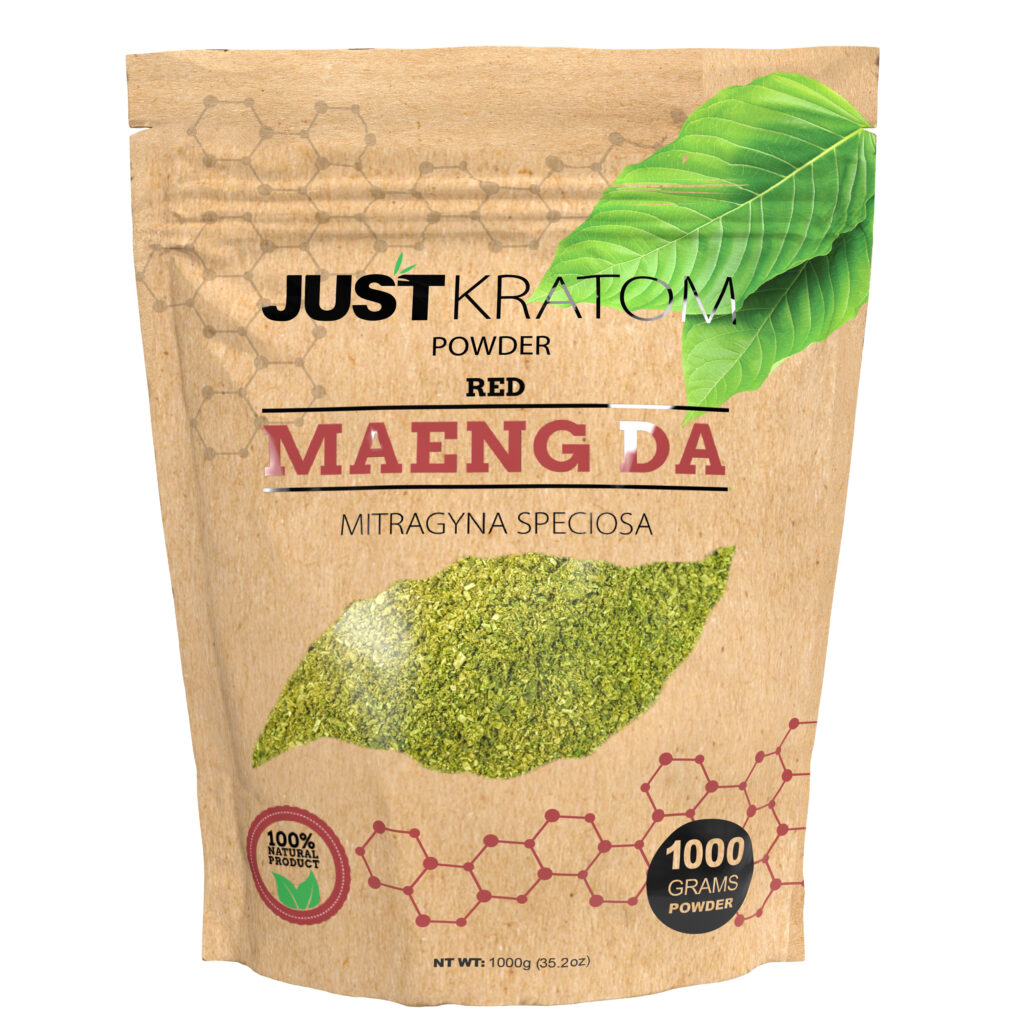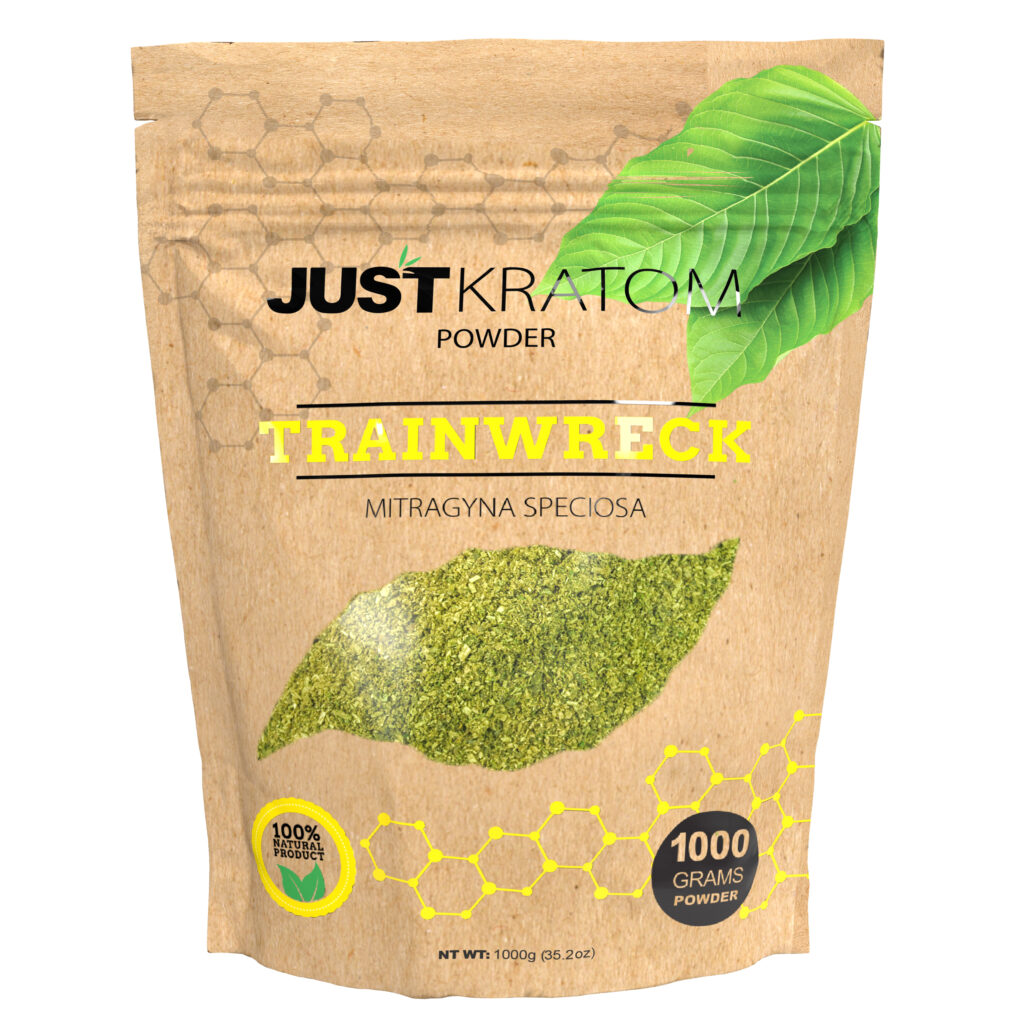Potential Cognitive Benefits of Kratom
Kratom, a tropical tree native to Southeast Asia, has gained attention for its potential cognitive effects. Some users report experiencing increased energy, focus, and mental clarity after consuming kratom. These anecdotal accounts have sparked interest in exploring the potential benefits of kratom powder for boosting productivity and creativity.
Impact on Focus and Concentration

Kratom, a tropical tree native to Southeast Asia, has gained attention for its potential cognitive effects. Some users report experiencing increased energy, focus, and mental clarity after consuming kratom. These anecdotal accounts have sparked interest in exploring the potential benefits of kratom powder for boosting productivity and creativity.
While research on kratom’s cognitive effects is still limited, preliminary studies suggest that certain compounds in kratom may influence neurotransmitters in the brain associated with attention, mood, and motivation.
- Increased Focus and Concentration:
- Improved Mental Clarity
- Enhanced Motivation
It’s important to note that more research is needed to fully understand the mechanisms behind kratom’s potential cognitive benefits and its long-term effects. Additionally, kratom use can have side effects and may interact with certain medications. It is crucial to consult with a healthcare professional before using kratom, especially if you have any underlying health conditions or are taking medication.
Influence on Mood and Motivation
Kratom, a tropical tree native to Southeast Asia, has gained attention for its potential cognitive effects. Some users report experiencing increased energy, focus, and mental clarity after consuming kratom. These anecdotal accounts have sparked interest in exploring the potential benefits of kratom powder for boosting productivity and creativity.
While research on kratom’s cognitive effects is still limited, preliminary studies suggest that certain compounds in kratom may influence neurotransmitters in the brain associated with attention, mood, and motivation. These neurotransmitters play a role in regulating focus, concentration, and drive, which are essential for productivity and creativity.
For example, some proponents of kratom suggest that its potential to stimulate dopamine release in the brain may contribute to feelings of motivation and enhanced cognitive performance. However, it is crucial to understand that these are preliminary findings and more research is needed to confirm these effects and explore their long-term consequences.
Possible Enhancement of Creative Thinking
Kratom, a tropical tree native to Southeast Asia, has gained attention for its potential cognitive effects. Some users report experiencing increased energy, focus, and mental clarity after consuming kratom. These anecdotal accounts have sparked interest in exploring the potential benefits of kratom powder for boosting productivity and creativity.
While research on kratom’s cognitive effects is still limited, preliminary studies suggest that certain compounds in kratom may influence neurotransmitters in the brain associated with attention, mood, and motivation.

- Increased Focus and Concentration
- Improved Mental Clarity
- Enhanced Motivation
It’s important to note that more research is needed to fully understand the mechanisms behind kratom’s potential cognitive benefits and its long-term effects. Additionally, kratom use can have side effects and may interact with certain medications. It is crucial to consult with a healthcare professional before using kratom, especially if you have any underlying health conditions or are taking medication.
Mechanism of Action in the Brain
The brain is a complex organ with intricate communication networks involving neurotransmitters. These chemical messengers relay signals between neurons, influencing various functions like focus, mood, and motivation. Kratom, a substance derived from the Mitragyna speciosa tree, has garnered attention for its potential to modulate these neurotransmitter systems.
Interaction with Opioid Receptors
Kratom contains compounds that may interact with opioid receptors in the brain. These receptors are part of a complex system involved in pain perception, mood regulation, and other physiological processes.
- Activation of mu-opioid receptors:
- Influence on dopamine pathways:
While research on kratom’s precise mechanisms of action is still ongoing, it is believed that these interactions with opioid receptors may contribute to its reported effects on cognition, mood, and energy levels.
Role of Other Neurotransmitter Systems
The brain utilizes a complex network of neurotransmitters to facilitate communication between neurons. These chemical messengers play a crucial role in regulating various cognitive functions, including attention, motivation, and mood.
Kratom, derived from the Mitragyna speciosa tree, contains compounds that may influence these neurotransmitter systems. Preliminary research suggests that kratom’s active alkaloids might interact with opioid receptors in the brain, particularly mu-opioid receptors.
Activation of these receptors can lead to a range of effects, including pain modulation, mood elevation, and changes in cognitive function. Additionally, kratom may also exert its effects by influencing dopamine pathways, which are heavily involved in reward processing and motivation.
Other neurotransmitter systems, such as serotonin and acetylcholine, may also be affected by kratom, contributing to its diverse range of reported effects on mood, energy levels, and cognitive performance.
Studies and Research Findings
Kratom, a tropical tree native to Southeast Asia, has gained attention for its potential cognitive effects. While research on kratom’s impact on cognition is still limited, preliminary studies suggest that certain compounds in kratom may influence neurotransmitters in the brain associated with attention, mood, and motivation.
Human Studies on Cognitive Performance
Kratom, a tropical tree native to Southeast Asia, has gained attention for its potential cognitive effects. Some users report experiencing increased energy, focus, and mental clarity after consuming kratom. These anecdotal accounts have sparked interest in exploring the potential benefits of kratom powder for boosting productivity and creativity.
While research on kratom’s cognitive effects is still limited, preliminary studies suggest that certain compounds in kratom may influence neurotransmitters in the brain associated with attention, mood, and motivation. These neurotransmitters play a role in regulating focus, concentration, and drive, which are essential for productivity and creativity.
- Increased Focus and Concentration
- Improved Mental Clarity
- Enhanced Motivation
It’s important to note that more research is needed to fully understand the mechanisms behind kratom’s potential cognitive benefits and its long-term effects. Additionally, kratom use can have side effects and may interact with certain medications. It is crucial to consult with a healthcare professional before using kratom, especially if you have any underlying health conditions or are taking medication.
Animal Studies Exploring Neurological Effects
Animal studies provide valuable insights into the potential neurological effects of kratom. Research has shown that certain compounds found in kratom can interact with opioid receptors in the brains of animals, leading to alterations in pain perception, mood, and motor function.
For example, studies have demonstrated that kratom extracts can reduce pain sensitivity in rodent models, suggesting a potential analgesic effect. Additionally, some animal studies have indicated that kratom may influence dopamine release in the brain, which is associated with reward and motivation.
However, it’s important to note that animal studies cannot always directly translate to human experiences. Further research is necessary to fully understand the long-term effects of kratom on the human brain and its potential impact on cognitive function.
Limitations and Conflicting Evidence
Research on kratom’s cognitive effects is still limited, primarily due to regulatory restrictions and social stigma surrounding the substance. Much of the available information relies on anecdotal reports from users and small-scale studies with methodological limitations.
Conflicting evidence exists regarding kratom’s potential benefits and risks. While some studies suggest positive effects on focus, mood, and motivation, others highlight potential negative consequences such as addiction, withdrawal symptoms, and adverse interactions with medications.
Further rigorous research, including large-scale clinical trials with standardized protocols, is crucial to establish a clearer understanding of kratom’s impact on cognitive function and overall health.
Safety and Side Effects
While the potential benefits of kratom for boosting productivity and creativity are intriguing, it’s essential to approach its use with caution. Kratom can have side effects and may interact with certain medications. It is crucial to consult with a healthcare professional before using kratom, especially if you have any underlying health conditions or are taking medication.
Potential Risks Associated with Kratom Use
Kratom, like any substance that affects the brain, carries potential risks. While some users report positive effects on focus and energy, it’s important to be aware of the possible downsides.
Side effects associated with kratom use can include nausea, vomiting, constipation, itching, dizziness, and increased heart rate. In some cases, kratom may lead to more serious issues such as liver damage, seizures, or respiratory depression.
Kratom’s interaction with other medications is also a concern. It can potentially amplify the effects of opioids, antidepressants, and other substances, leading to dangerous complications. Individuals with pre-existing health conditions, particularly those related to the liver, heart, or brain, should exercise extreme caution when considering kratom use.
Because of these potential risks and the limited research surrounding kratom, it’s crucial to prioritize safety. Consulting with a healthcare professional before using kratom is essential to assess potential risks and benefits based on individual circumstances.
Dosage Considerations and Best Practices
Kratom can have side effects that range from mild to severe. Nausea, vomiting, constipation, itching, dizziness, and increased heart rate are some common side effects. In more serious cases, kratom may lead to liver damage, seizures, or respiratory depression.
It is important to note that kratom can interact with certain medications, including opioids, antidepressants, and other substances. These interactions can be dangerous and may lead to adverse effects.
The appropriate dosage of kratom varies depending on individual factors such as body weight, metabolism, and the desired effect. It is crucial to start with a low dose and gradually increase it under the guidance of a healthcare professional.
Best practices for using kratom include:
- Consulting with a healthcare professional before use.
- Starting with a low dose and gradually increasing as needed.
- Being aware of potential side effects and interactions with medications.
- Using kratom responsibly and avoiding excessive consumption.

Remember, kratom is a substance that can have both benefits and risks. It is essential to approach its use with caution and prioritize safety.
Legal Status and Regulations
The legal status of kratom varies widely around the world. In some countries, it is completely legal and readily available, while in others it is strictly prohibited or has been subject to bans and restrictions. The United States federal government currently classifies kratom as an unregulated substance, but several states have enacted their own laws regarding its sale and possession. Understanding the specific legal regulations in your region is crucial before considering kratom use.
Varying Legal Landscape Across Countries
The legality of kratom varies significantly across different countries and regions. In some nations, it is fully legal and accessible to consumers. Other countries have imposed complete bans on kratom, prohibiting its production, sale, and possession. Additionally, certain jurisdictions have implemented restrictions or regulations concerning the purchase, use, and distribution of kratom.
Within the United States, kratom’s legal status is complex and fragmented. At the federal level, kratom is not classified as a controlled substance, meaning it is not explicitly prohibited by federal law. However, individual states have the authority to enact their own regulations regarding kratom. Some states have legalized kratom outright, while others have imposed bans or restrictions on its sale, distribution, or possession.
It’s essential to consult with legal professionals and thoroughly research the specific laws governing kratom in your area before considering its use. Noncompliance with local regulations can lead to legal consequences.
Guidelines for Safe and Responsible Use
The legal status of kratom varies significantly around the world.
In some countries, it is completely legal and readily available, while in others it is strictly prohibited or has been subject to bans and restrictions. The United States federal government currently classifies kratom as an unregulated substance, but several states have enacted their own laws regarding its sale and possession.
Within the United States, kratom’s legal status is complex and fragmented.
At the federal level, kratom is not classified as a controlled substance, meaning it is not explicitly prohibited by federal law. However, individual states have the authority to enact their own regulations regarding kratom. Some states have legalized kratom outright, while others have imposed bans or restrictions on its sale, distribution, or possession.
It’s essential to consult with legal professionals and thoroughly research the specific laws governing kratom in your area before considering its use. Noncompliance with local regulations can lead to legal consequences.
Guidelines for safe and responsible kratom use are important considerations for anyone exploring this substance.
It is crucial to start with a low dose and gradually increase it as needed, paying close attention to individual tolerance and any potential side effects.
- Consulting with a healthcare professional before using kratom is essential, especially if you have any underlying health conditions or are taking medication.
- Being aware of potential drug interactions is critical, as kratom can interact with various substances, including opioids, antidepressants, and blood thinners.
- Avoiding excessive consumption and adhering to recommended dosage guidelines is crucial to minimize the risk of adverse effects.
Additionally, individuals should be cautious about purchasing kratom from unreliable sources, as the quality and purity of products can vary widely.
Get premium Kratom Powder shipped to your door
- Comparing THC Seltzers To CBD Drinks: Key Differences - May 9, 2025
- Brow Lift Treatment Near Norwood, Surrey - May 9, 2025
- Neauvia Hydro Deluxe Skin Booster Treatments Near Woodmansterne, Surrey - May 8, 2025
